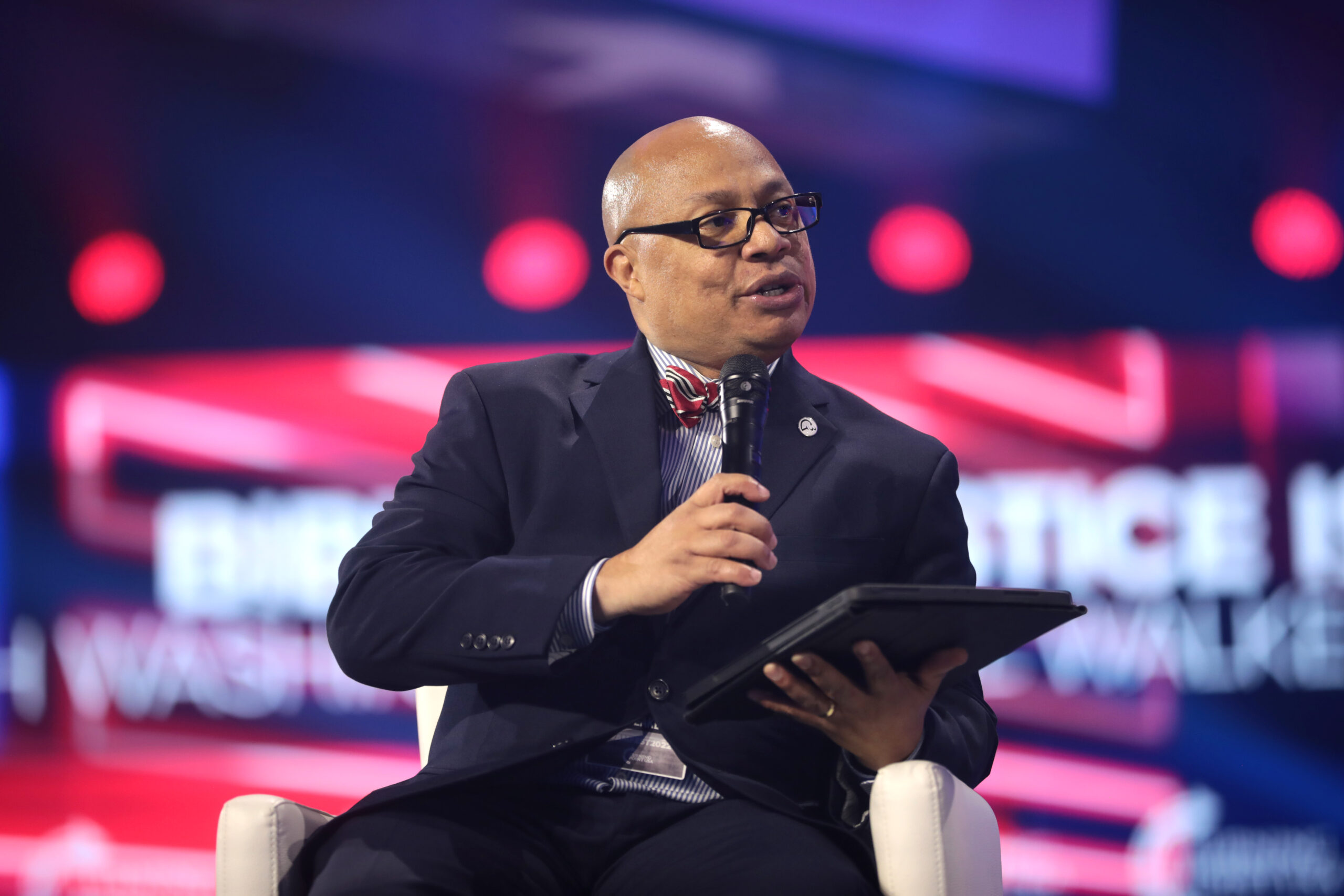The rapid decline of legacy media reflects a growing cultural shift that churches cannot ignore. Recent developments, such as Chris Wallace leaving CNN at the age of 77 to start a podcast, and the LA Times abandoning its tradition of endorsing presidential candidates in 2024, signal the waning influence of traditional outlets. These changes expose a broader crisis in trust and the pressing need for new platforms that prioritize transparency, biblical truth, and integrity.
As churches seek to faithfully proclaim the gospel in a hostile culture, the role of biblically grounded media becomes essential. In an era marked by skepticism toward mainstream journalism, Christian media offers a much-needed stabilizing force. By presenting clear, biblical perspectives, it equips believers to engage with truth, discern cultural lies, and remain steadfast in their faith.
The Growing Crisis of Media Trust
Media’s role as a “truth-teller” has been severely compromised. A Gallup/Knight Foundation survey found only 36 percent of Americans believe news organizations report the news “fully, accurately, and fairly.” Pew Research reveals that 73 percent of Americans suspect social media platforms of censoring political viewpoints, while a Statista report indicates 52 percent believe mainstream media deliberately misleads the public. This erosion of trust creates a profound opportunity for churches and Christian media to provide an alternative—an unshakable foundation rooted in Scripture.
Clear Worldviews Build Trust
Every media outlet operates from a worldview. While secular outlets often mask their ideological biases, Christian media stands distinct by openly proclaiming its foundation in God’s Word. As Proverbs 30:5 reminds us, “Every word of God proves true.” This transparency not only builds trust but also equips the Church to fulfill its mission of discipling believers.
Christian media grounded in biblical truth can reflect the sufficiency of Scripture, demonstrating how God’s Word applies to all areas of life, from ethics and politics to family and culture. It equips believers with discernment, helping them filter competing narratives through a biblical lens. In doing so, it strengthens the Church’s witness to a skeptical world.
The Biblical Mandate for Truth
For churches, supporting biblically grounded media is not merely a cultural strategy but a theological imperative. Jesus identified Himself as “the Truth” (John 14:6), and the Church is called to uphold and proclaim His truth. In an age when “fake news” and misinformation dominate headlines, Christian media becomes a tool for reinforcing biblical values and guarding the hearts and minds of believers.
As Ephesians 4:14 warns, the Church must help believers avoid being “tossed to and fro by the waves and carried about by every wind of doctrine, by human cunning, by craftiness in deceitful schemes.” Biblically grounded media fulfills this role by providing trustworthy, doctrinally sound content that strengthens faith and combats cultural confusion.
The Role of the Church in Reclaiming Truth
Churches are uniquely positioned to lead in this area. By partnering with biblically sound media platforms, pastors and ministry leaders can provide their congregations with resources that align with the authority of Scripture. Whether through sermons, small group studies, or social media, Christian media can amplify the Church’s voice, ensuring that God’s truth reaches hearts and homes.
Additionally, churches must teach their members to think critically about the media they consume. As Philippians 4:8 instructs, believers should focus on “whatever is true, honorable, just, pure, lovely, commendable, excellent, or worthy of praise.” This requires discernment—a skill that biblically grounded media can help develop.
Why Christian Media Matters for Discipleship
Christian media is not just a cultural tool; it is a discipleship resource. Through podcasts, articles, and videos rooted in sound theology, it helps churches equip their members to live faithfully in a world increasingly opposed to biblical truth. Here’s why biblically grounded media is indispensable for the Church:
- Providing Godly Perspectives: Christian media helps believers interpret current events through the lens of Scripture, fostering a deeper understanding of God’s sovereignty in all things.
- Equipping Believers for Cultural Engagement: By addressing issues such as gender, life, and justice from a biblical perspective, it prepares Christians to give a reason for the hope within them (1 Peter 3:15).
- Strengthening Doctrinal Clarity: Biblically grounded media defends timeless truths, protecting the Church from false teaching and theological compromise.
Reclaiming Truth in a Post-Trust Culture
As secular media continues to falter, churches have an unprecedented opportunity to reclaim truth in the public square. By supporting and utilizing biblically grounded media, churches can lead the way in fostering clarity, trust, and gospel-centered engagement. For G3 Ministries, this is more than a cultural moment—it is a call to action. Together, we can equip the Church to proclaim Christ in a world desperate for truth.
In this digital age, it’s not enough to consume content passively. Believers must seek out and support media that upholds God’s Word, challenges cultural lies, and glorifies Christ. The Church must rise to meet this challenge, confident in the sufficiency of Scripture and the power of the gospel.
